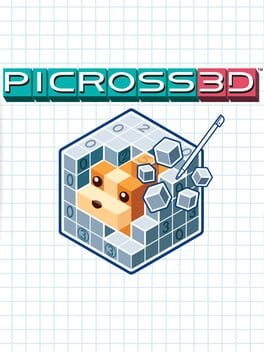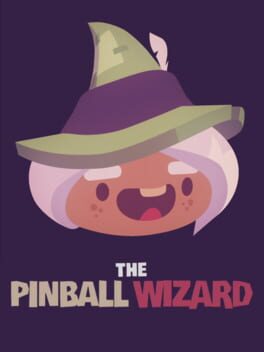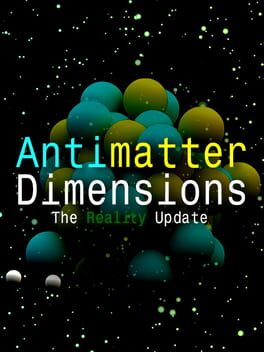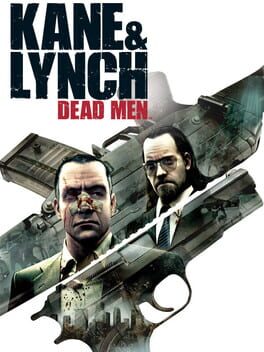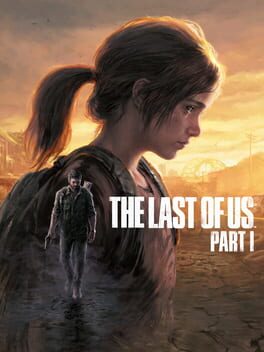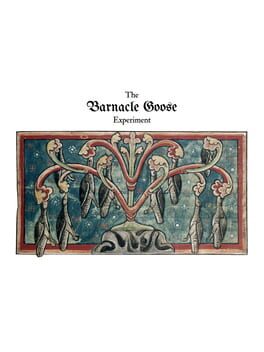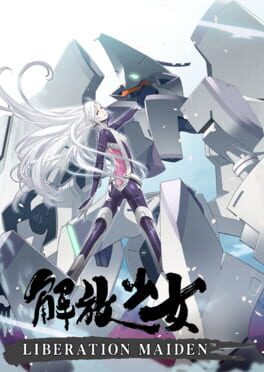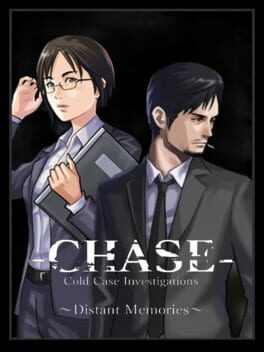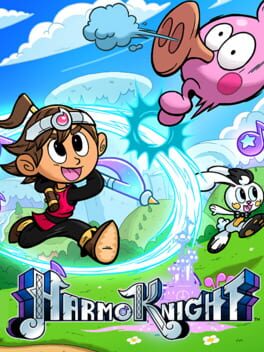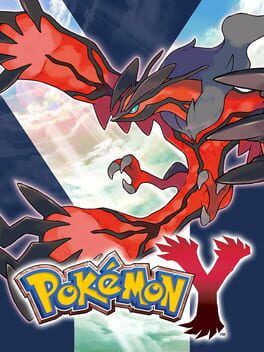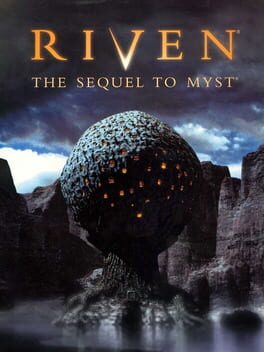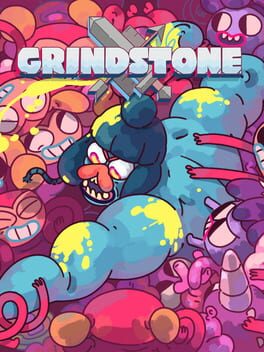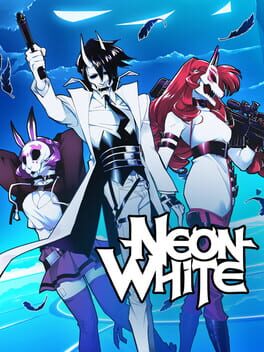LukeFowler
2009
I could write an essay, a long one, on the genius of this game's concept and the intricacy of its execution, but it's Friday afternoon, and I like think I have better things to do. (I like to lie to myself, in other words.) For now, suffice it to say that the Hard puzzles are among the best I've played in any game, and that while a few Round 2 QOL enhancements would've been welcome here (especially the bomb and reworked "completed line" indicator), the lack of a hint system improves this one to such a startling degree that I'm tempted to do a full "hintless" replay of the sequel. I do wish the really incredible stuff was unlocked from the start, but the easier puzzles still have a zen charm of their own. HAL should have made 10 of these.
2019
I’ll always be a sucker for some pinball in virtually any context, but this has absolutely nothing new to offer after unlocking everything—which only takes a couple hours, especially if you invest in certain OP skills early. A key element of roguelikes as a genre (and pinball, for that matter) is that they need to have enough mechanical variety to keep repeat runs from feeling like replays of the same game, and The Pinball Wizard…doesn’t. And like fellow Apple Arcade killer app Grindstone, it’s streamlined in all the wrong areas. For example, after a Daily Dungeon, why does it take a minimum of twenty seconds to tally up loot and experience, add them up to your total score, display the leaderboard, and let you back in for another try? I’ve had runs that didn’t even last that long!
Have you ever stopped to consider how much your power has grown?
Now, you could fell enemies in Onett and Twoson with one blow.
Loses half a star for the inane, 2010-vintage internet humor throughout (you can turn the news ticker off, but not the achievements), and another for a curiously underwhelming final stretch. (Not going to spoil the details, but I'm referring to everything from Singularities onward.) Talking about the design of Antimatter Dimensions can sound like you're describing a game from…well, another universe, and I encourage anyone reading this to give it a shot if that description interests you whatsoever. Don't worry if you tap out after a while; that's canon!
Now, you could fell enemies in Onett and Twoson with one blow.
Loses half a star for the inane, 2010-vintage internet humor throughout (you can turn the news ticker off, but not the achievements), and another for a curiously underwhelming final stretch. (Not going to spoil the details, but I'm referring to everything from Singularities onward.) Talking about the design of Antimatter Dimensions can sound like you're describing a game from…well, another universe, and I encourage anyone reading this to give it a shot if that description interests you whatsoever. Don't worry if you tap out after a while; that's canon!
At times, some of the best gameplay and story integration in the history of the medium; at others, the dissonance is so pronounced that it threatens to shatter the whole facade. But I thoroughly enjoyed both halves of the game’s tenuous yin-yang, and a part of me wonders whether I’m holding it to an unfairly high standard in light of its sky-high aspirations. In any case: glad to have finally caught up with this one. Highly recommend playing on Hard or higher (if you’re better at video games than me).
This review contains spoilers
Had a nice time with this, even though I completely misunderstood the win condition and had the ending dampened by a game-breaking bug. Expect my rating to go up if I ever replay this, but since you clicked on the spoiler warning, two tips to improve your experience: make sure to whittle down your goose and egg stock, and don't assume any items are dead ends. Especially the ones that most seem like it.
2017
2012
When I got to the end of this game’s tutorial case, I wasn’t sure if I wanted to play the whole thing. I didn’t know how many cases awaited me, but the Ace Attorney Trilogy collection had 16 cases and went for $30, so five seemed reasonable, given this one’s visibly lower production values and $10 price tag. (I should also add that this game’s first case is significantly shorter than Phoenix Wright: Ace Attorney’’s tutorial.) But I wasn’t sure I could stand four more cases of that gameplay. Chase consists almost entirely of memorizing clues and watching the characters figure out their significance on their own, quizzing you not on your problem-solving skills but on your knowledge of trivia like characters’ names. It’s broken up by a few hidden object puzzles, but only one of them has any kind of penalty for an incorrect answer (which is, hilariously, an instant game over). I wasn’t a fan of the writing, either—the main investigator seems deliberately designed to be as unbearable as possible, and while I understood it was just a starting point for his development, that didn’t make his dialogue any more fun to read in that first case. And the rest of the dialogue was a repetitive slog too! When the case’s (admittedly surprising) cliffhanger hit and the opening credits rolled, I was considering putting the game down for good.
And then it turned out those were the closing credits. That was the entire game.
And then it turned out those were the closing credits. That was the entire game.
2012
Stray thoughts:
- Very unfortunate that this Bit.Trip Runner knockoff came out only a year before Runner2, a game which iterates on its predecessor in actually good and fun ways.
- The regular levels are hit-or-miss, mostly dependent on which enemies and mechanics they include (some are benign, some are annoying, and some are completely broken). Any level with those fucking bounce pads can go straight to hell.
- I did quite like level 6-3, which sets up a pattern, introduces slight variations on it, and then slowly zooms the camera in to test your memory of the pattern and response times for its variations. Good use of the format! It's unfortunately quite late in the game, but there's barely any game here anyway.
- Most rhythm games have challenging notes that give you some kind of bonus if you hit them. HarmoKnight “innovates” on this design mainstay with notes that instantly end your run if you don't hit them, bypassing the hearts system completely. These notes’ placement is totally arbitrary—that is, except for the boss battles, where they're still placed largely irrespective of the given cue’s difficulty, but at least they correspond with big moments in the QTE cutscene you're playing. Oh, yeah:
- The boss levels are some of the worst I've played in any rhythm game. Maybe any game period. Some of them have fun visuals (I'm a fan of the steam…engine…thing? that you fight on the water), but you're spending more than half the time watching glorified cutscenes instead of playing the damn game! And for some ungodly reason, scoring for these fights is way, way tighter than non-boss levels—as far as I could tell, a single miss will bump you down to a silver medal on every one, and the game's various timing issues mean you'll likely have to replay these boring call-and-response QTE segments multiple times over. (Did I mention the final boss fight is four minutes long?) Meanwhile, you can completely bomb any of the normal levels and still have a decent chance at gold. I don't get it.
- The song selection for the Pokémon bonus stages makes no sense. One songs from gen I, two from gen II, and one from gen V? It was nice to play some levels with good music for a change, though, and I'd love to see a Theatrhythm Final Fantasy-style Pokémon rhythm game some day. You could even get indieszero to do it!
- More than anything, HarmoKnight feels unfinished. Three worlds in, the game has this winking fake-out where a character goes "I guess this is the end of our adventure!" and the joke is that it's really just getting started, but at that point you've already played more than half of the stages in the main game! Add that to the polish issues (you really couldn't think of anything to put on the bottom screen in the overworld?) and the unrefined gameplay, and the result is a game that feels like a demo. Actually, no, because a demo would be a proper vertical slice; this is more like an early-stage proof of concept. And it's not a bad concept! I've been extremely negative in this review, but I can't deny I was charmed by the game's early stages! I was ready for HarmoKnight to become my new fixation. But I can't pretend this game is good.
- When I get a Superb in Rhythm Heaven, or five stars in Guitar Hero, or even when I scrape by with a "U rappin' GOOD!" in Parappa the Rapper, I feel like I've accomplished something. Whenever I got a gold in HarmoKnight, I thought "thank God I never have to play that stage again".
- Very unfortunate that this Bit.Trip Runner knockoff came out only a year before Runner2, a game which iterates on its predecessor in actually good and fun ways.
- The regular levels are hit-or-miss, mostly dependent on which enemies and mechanics they include (some are benign, some are annoying, and some are completely broken). Any level with those fucking bounce pads can go straight to hell.
- I did quite like level 6-3, which sets up a pattern, introduces slight variations on it, and then slowly zooms the camera in to test your memory of the pattern and response times for its variations. Good use of the format! It's unfortunately quite late in the game, but there's barely any game here anyway.
- Most rhythm games have challenging notes that give you some kind of bonus if you hit them. HarmoKnight “innovates” on this design mainstay with notes that instantly end your run if you don't hit them, bypassing the hearts system completely. These notes’ placement is totally arbitrary—that is, except for the boss battles, where they're still placed largely irrespective of the given cue’s difficulty, but at least they correspond with big moments in the QTE cutscene you're playing. Oh, yeah:
- The boss levels are some of the worst I've played in any rhythm game. Maybe any game period. Some of them have fun visuals (I'm a fan of the steam…engine…thing? that you fight on the water), but you're spending more than half the time watching glorified cutscenes instead of playing the damn game! And for some ungodly reason, scoring for these fights is way, way tighter than non-boss levels—as far as I could tell, a single miss will bump you down to a silver medal on every one, and the game's various timing issues mean you'll likely have to replay these boring call-and-response QTE segments multiple times over. (Did I mention the final boss fight is four minutes long?) Meanwhile, you can completely bomb any of the normal levels and still have a decent chance at gold. I don't get it.
- The song selection for the Pokémon bonus stages makes no sense. One songs from gen I, two from gen II, and one from gen V? It was nice to play some levels with good music for a change, though, and I'd love to see a Theatrhythm Final Fantasy-style Pokémon rhythm game some day. You could even get indieszero to do it!
- More than anything, HarmoKnight feels unfinished. Three worlds in, the game has this winking fake-out where a character goes "I guess this is the end of our adventure!" and the joke is that it's really just getting started, but at that point you've already played more than half of the stages in the main game! Add that to the polish issues (you really couldn't think of anything to put on the bottom screen in the overworld?) and the unrefined gameplay, and the result is a game that feels like a demo. Actually, no, because a demo would be a proper vertical slice; this is more like an early-stage proof of concept. And it's not a bad concept! I've been extremely negative in this review, but I can't deny I was charmed by the game's early stages! I was ready for HarmoKnight to become my new fixation. But I can't pretend this game is good.
- When I get a Superb in Rhythm Heaven, or five stars in Guitar Hero, or even when I scrape by with a "U rappin' GOOD!" in Parappa the Rapper, I feel like I've accomplished something. Whenever I got a gold in HarmoKnight, I thought "thank God I never have to play that stage again".
2013
Boasts a great regional dex and a couple visually spectacular set pieces, but it’s all wasted on the blandest quest and world design in the entire series up to this point. I tried playing this a few years ago and got so bored I couldn’t even finish; this time I made the choice to play without the Exp. Share, which actually gave the game some semblance of a difficulty curve!
2019
If you’re only looking for a reliable time-waster, then Grindstone more than rises to the challenge—in many ways, it’s one of the best the iOS App Store has to offer. But I can’t imagine getting much out of this on a home console. The main issue’s the difficulty curve: once you figure out how the game “works” and how to manipulate outcomes in your favor (which you’re all but required to do if you want to stand a chance against the late game bosses), you’ll almost never struggle with a level again. While the endgame mechanics are a lot of fun to play around with, all they functionally do is provide a skilled player with even more potential angles of attack, which leads to awkward scenarios like the final boss being significantly easier than the earlier iterations of the same fight. There are some polish issues, too (why does it take so many taps and animations to refill your health and repair your gear, two actions which players will be doing after almost every level?), but the game as a whole has more polish than I’m used to on iOS, so I can live with it. A must-play on Apple Arcade; a hard pass on any of the marketplaces charging $20 for it.
2022
Went for 100% on replay; i.e., got all the Ace medals (and surprised myself with a few red ones too), completed all the gift challenges and sidequests, and against my better judgment, I even read all the dialogue. I left this run-through of Neon White with new appreciation and new frustrations in roughly equal measure, with intersections between the two that'd take an essay to unravel, or maybe a three-hour YouTube video called "Neon White: An Exhaustive Critique" or some bullshit. I'll save that for round 3.
